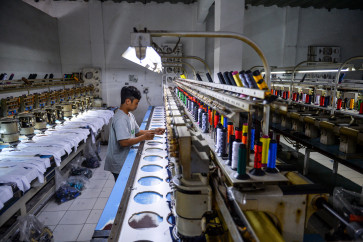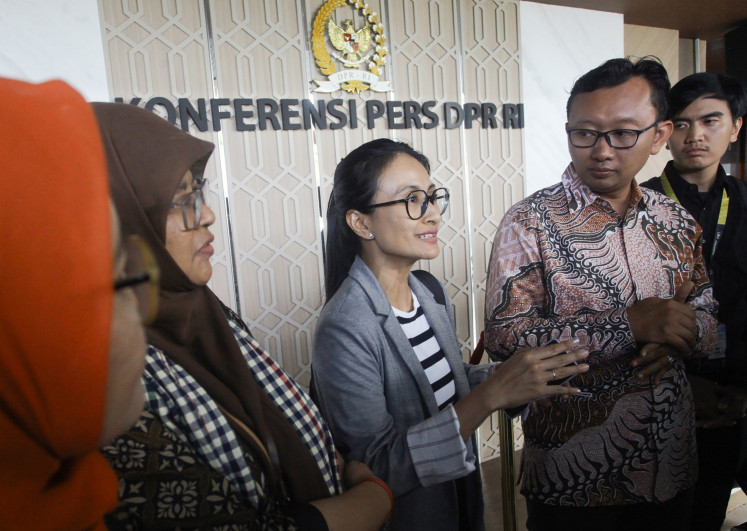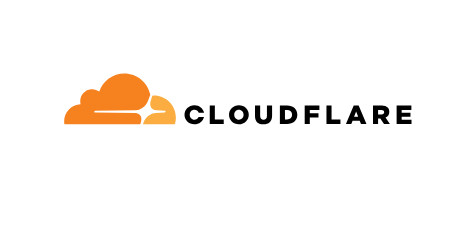Popular Reads
Top Results
Can't find what you're looking for?
View all search resultsPopular Reads
Top Results
Can't find what you're looking for?
View all search resultsPandemic, payments and the future of money
Change text size
Gift Premium Articles
to Anyone
T
he unforeseen and prolonged COVID-19 pandemic has changed the payments landscape as consumers shift from in-store to online payments, while businesses have had to adapt to the change in consumer behavior and growth trends.
From the time the global health crisis emerged almost two years ago until today, when it has started to subside, millions of people turned to e-commerce platforms for all of their purchasing needs, from groceries to financial transactions.
Electronic money and other digital payment instruments, notably e-wallets, are gaining popularity as preferred payment options and have partly contributed to the growth of digital payment services and e-commerce platforms.
Global digital payment transactions showed accelerated growth of 41 percent to more than 70.3 billion real-time transactions in 2020 from 2019 figures.
According to Bank Indonesia (BI), the value of e-money transactions in the country had reached Rp 29.23 trillion (US$2 billion) as of October on 55.54 percent year-on-year (yoy) growth. The volume of digital banking transactions is also on the rise, growing 63.31 percent yoy in October 2021 to Rp 3.910.25 trillion
Real-time payments remain in a nascent stage worldwide, according to Samuel Murrant, lead payments analyst at GlobalData.
“However, the pandemic has provided an opportunity to accelerate the growth path for these instruments. As consumers become used to the speed of real-time settlement for P2P [peer-to-peer] payments, they will naturally move to using them for e-commerce over the relatively slower and less convenient process of using cards online,” he said.
Consumers’ preference for online payment services has led to a boom for digital payment businesses and more e-wallet players entering the mobile money market. Around 50 licensed e-wallet platforms currently operate in the Indonesian market, with local financial technology (fintech) players dominating the domestic digital payments market. Several foreign e-wallet providers also operate in Indonesia in collaboration with local banks.
As consumers show greater interest in alternative payment methods, businesses are being advised to undergo a similar transformation in embracing digital money to meet growing demand.
In his article titled “Driving competitive advantage and customer experience with digital payment”, Tarek Elyafi, Cash Management and Head of Sales, Americas, at Standard Chartered, wrote: “Instant payment schemes are proliferating globally as central banks and clearing houses develop their payment offerings to better support the digital economy.”
Continuing, Elyafi said companies benefitted from real-time or near-real-time settlement, which led to improved working capital, reduced credit risk and capacity to manage intraday liquidity.
“Embracing mobile wallets is essential for any company selling direct to consumers or small businesses, whether in person or online, both across their existing footprint and in new markets,” he advised.
“By doing so, they can engage with the widest spectrum of potential customers and suppliers, including the unbanked, whilst reducing the risk and cost associated with cash.”
These costs savings can be substantial. The average cost of processing cash for merchants is 5 to6 percent of the transaction value, compared with a maximum 0.5 percent for mobile payments.
“Given the slim margins for consumer-facing industries, particularly restaurants and small retailers, incentivizing mobile payments over cash can improve net margins by up to 30 percent,” Elyafi explained.
As digital transactions accelerate, it is of paramount importance for businesses to ensure that they accommodate all payment methods to support online sales, particularly for cash collection. Many companies are being challenged to keep up with cash management digitalization and customers’ ever-increasing demand that they go digital.
According to experts at Standard Chartered, fintech companies have been at the vanguard of the acceleration in digital payments during the pandemic by driving QR code innovations and linking national real-time payment systems. In the post-pandemic world, fintechs can increase scalability by partnering with banks.
This partly explains the factor behind most fintech companies’ move to collaborate with banks. For example, Australian fintech start-up Airwallex has collaborated with Standard Chartered to find new solutions to help businesses make international payments.
Up-to-date insights have proven critical in Airwallex’s latest growth phase, and they may become more valuable yet post-COVID-19.
According to Elyafi, the digital payments journey is still accelerating, with instant payments and mobile money becoming increasingly embedded into the payment culture of both consumers and businesses. Businesses can also help shape this journey by automating their payment and cash management solutions so they are future-ready.
Standard Chartered is ready to support its customers and add extra value in this competitive post-pandemic landscape through a series of innovations it has created, and the bank is eager to become a trusted partner in the growth journey.
S2B Pay
Straight2Bank Pay (S2B Pay) is a service Standard Chartered launched in the third quarter of 2021 to provide a single global digital gateway for companies in Indonesia to collect payments using various methods.
S2B Pay allows companies to digitalize cash collection with banks as the primary driver, in alignment with Bank Indonesia’s vision to digitalize the payment systems infrastructure.
As one of the few first international banks in Indonesia to introduce such comprehensive services, Standard Chartered offers aggregated multiple payment options via partnerships with leading payments players and direct connection to instant payment schemes across markets that the bank serves, including 13 markets across Asia.
S2B Pay also supports seamless digital commerce across a company’s sales channels, including online platforms (e-commerce), mobile apps (m-commerce), digitized cash on delivery and in-store payment links, bill presentment, as well as invoice-based collection.
Through direct connectivity and instant payment schemes across its key markets, alongside its partnerships with leading payment service providers and fintech players, Standard Chartered serves companies’ growing need for an efficient digital cash management system.
End consumers are also benefited with ease of transaction to be its core offering. Upon clicking on the digital payment link (in email, digital invoices, the checkout page on websites, etc.), or scanning a QR code (when receiving deliveries or paying at counter), customers are easily directed to Standard Chartered’s S2B Pay payment gateway page that shows the specific payment amount due and options for payment method.
Companies can now rely on the bank as their sole payment service provider, cutting out the need to establish multiple technological connections, open multiple accounts, negotiate multiple contracts or perform due diligence on multiple partners for increased operational efficiency and cost savings.
VAP
Standard Chartered has also rolled out its Virtual Account Payment (VAP) system, which helps companies identify and aggregate payment flow at the branch level by offering seamless end-to-end system integration with enterprise resource planning (ERP) systems. Similar to Virtual Account Collection (VAC) that is common among banks, VAP is also built from virtual account basis – meaning, no physical account needs to be opened. However, for companies who still wish to segregate their expenses aligning with their projects, branches, sub-units/departments, VAP can be assigned uniquely to each of these purposes.
As pioneer to the VAP, Standard Chartered brings the proposition to another level whereby this VAP still can be operated/controlled similar to normal physical account, whereby corporate client can assign their own authorisation matrix or user matrix to access for each VAP differently according to the purpose. This approach can streamline the company’s account structure, which will bring better transparency, control and efficiency.
As speed, real-time transaction and connectivity play key roles in cash digitalization processes, this host-to-host connectivity service enables straight-through payment flow, eliminating the need to manually upload payment files and enabling companies to automate operational transactions.
CDM
In addition to the two forementioned digital solutions, companies can also consider an integrated cash collection service that uses machines, namely cash deposit machines (CDM) that Standard Chartered has launched in partnership with Brinks, the world's largest security company.
Conventional cash deposit methods are time-consuming and risk prone. Thus, being one of the initial key parts of digitalizing cash management, this solution creates the bridge between manual and digital processes by depositing real-time credit from hard cash into client accounts, complete with comprehensive monitoring and risk mitigation. The CDM system features real-time crediting to user accounts and secures access through biometric ID cards.
With CDM placed in companies’ vicinity like store outlets or sales hubs, their staff do not need to travel to banks or cash deposit centers. They just collect the bank notes from cash registers and place them in the machines that will do the rest of the processing, including cash deposits, counting and settlements, with results to be reflected in the company’s account at a very short time. Adopting the CDM system can increase companies’ cash management efficiency by reducing overtime costs related to conventional methods by 50 percent and by 75 percent in relation to cash-counting activities.
“With safe distancing and work-from-home advisories amid COVID-19, many Indonesian companies can benefit from adding integrated digital cash collection solutions to continue with their operations effectively, in addition to their existing cash collections method. Customers are also benefited as most of them prefer touchless, digital payment methods,” said Yustina Arlini Widjaja, Director, Head of Cash Product, Transaction Banking, Indonesia, Standard Chartered.
As digitalization and technology adopting showing no sign of slowing down, it is imperative for companies to have digital cash collection and management systems in place. Following the government’s keen agenda to expedite the payment digitalization, coupled with banks’ – like Standard Chartered – consistent push in offering innovative solutions, the choices are crystal clear for companies: Digitalize now and tap into the myriad opportunities that the future digital economy has to offer or stand still and be left behind.
Read also: Banks gear up to realize government’s vision of payment system










